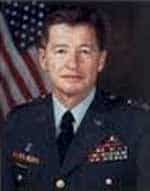A New Help for Conservative Presbyterian Chaplains in our Armed Forces
Being a military chaplain in any of our Armed Forces was always viewed with favor by this contributor. That was probably because my father served his God and country as an Army chaplain from World War Two through the Korean Conflict. There were divine appointments in the context of a military which are not found in any civilian context. And when the chaplain is a Bible-believing, Gospel-preaching minister to men and women in the military, there is an extraordinary opportunity to see God’s kingdom and church grow in the faith and knowledge of the Triune God.
Prior to 1976, the National Association of Evangelicals were endorsing chaplains on behalf of young Presbyterian Church in America. As good as that was, there was a conviction on the part of some, which was communicated by the Pacific Presbytery of the P.C.A., to request a study to consider whether sister Presbyterian churches could join together to endorse their own chaplains to the Chief of Chaplains. Committees were formed in the respective Presbyterian churches, such as the Presbyterian Church in America, the Orthodox Presbyterian Church, and the Reformed Presbyterian Church, Evangelical Synod. Ministers in all three churches who had been or were then military chaplains formed these committees. A working group was organized and a name was suggested, which was, “Presbyterian and Reformed Joint Commission on Chaplains and Military Personnel.”
On September 21, 1978, the initial meeting was held at Covenant Theological Seminary in St. Louis to form such a commission. The combined churches had over 100,000 members and could therefore endorse chaplains on its own. Some of the added benefits of having our own endorsing agency included the ability to hold our own spiritual retreats, an increased awareness of our chaplains and their ministries at national denominational meetings, better representation before the Chief of Chaplains in Washington, D.C., and a national newspaper, called the Guardian.
 Other Presbyterian and Reformed bodies joined in the commission, such as the Korean American Presbyterian Church, Korean Presbyterian Church in America, Reformed Presbyterian Church of North America, and the United Reformed Churches in North America. Col. (ret.) David Peterson, after a thirty year career in the United States Army as a chaplain, became the Executive Director in 1995. He served until just recently when Brig. General (ret.) Douglas Lee took over the helm of that position.
Other Presbyterian and Reformed bodies joined in the commission, such as the Korean American Presbyterian Church, Korean Presbyterian Church in America, Reformed Presbyterian Church of North America, and the United Reformed Churches in North America. Col. (ret.) David Peterson, after a thirty year career in the United States Army as a chaplain, became the Executive Director in 1995. He served until just recently when Brig. General (ret.) Douglas Lee took over the helm of that position.
To read more about this ministry, now led by CH (LTC) Jim Carter, RET, click here.
Pictured above right, Chaplain David Peterson
Words to live by: There are opportunities and challenges for our military chaplains which pastors in their civilian churches do not have normally. Young men and women in uniform are facing war tours away from families. How great is it to have a Bible-believing chaplain to be there with the Word of God to meet them in public and private. Temptations are always present in a military situation. How good is it to have a gospel-preaching chaplain present who can provide an escape from that temptation with other Christian soldiers for a Bible-study, or meaningful worship time. Family life without a father or a mother, a husband or a wife, is stressful. A Reformed chaplain can be there to counsel in difficult times. Pray for our military chaplains. Write them letters or emails of encouragement. Provide them and their soldiers with care boxes from home. Support them in their important callings.
For further reading : “The Presbyterian and Reformed Joint Commission on Chaplains and Military Personnel,” by Robert B. Needham — Chapter 24 in Confident of Better Things, edited by John Muether and Danny Olinger (pp. 471–484). Needham provides a succinct history of the PRJCMP, undergirding that history with a very useful Scriptural defense of military chaplaincy.
